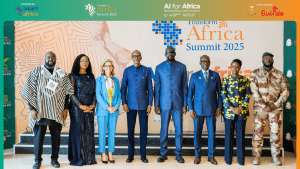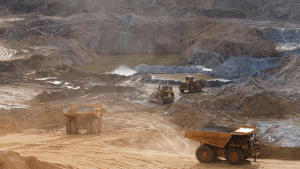Osman Mirghani: Sudan’s weapons and informal settlements

It will not be easy for the Sudanese people to forget the pain of this war. It has touched nearly every household. Nearly every corner of the country has been ravaged, and the scars will remain etched in collective memory for a long time to come.
Sudan will not be what it was before the war. Many bitter lessons will be drawn from this experience. Many issues that had long been ignored will change after complaints became frequent, but action was absent.
Among the most important lessons is the need to end the phenomenon of militias. Armed movements and parallel armies will not be tolerated; only the regular armed forces under the sole authority of the state will maintain arms. The previous era of lawlessness that allowed the Rapid Support Forces (RSF) to grow led Sudan to where it is today.
Accordingly, an important step was taken with the recent decision obliging all the allies fighting alongside the army to comply with the 2007 Armed Forces Law. Beyond its organisational and institutional dimension (imposing discipline on armed groups and ensuring the legal and controlled use of arms) it lays the foundation for the next phase and allows us to take the additional steps needed to ensure the integration of all forces into the ranks of the Sudanese Armed Forces. The process would follow established mechanisms, procedures, and terms, ensuring the consolidation of a single, professional, national army under the state’s control- not under the command of groups and individuals pursuing their private interests.
Among the most important lessons is the need to end the phenomenon of militias. Armed movements and parallel armies will not be tolerated; only the regular armed forces under the sole authority of the state will maintain arms.
This decision did not come out of nowhere. It follows previous decisions to ban visible armament in central Khartoum and relocate all forces to camps outside the capital, strictly prohibiting individuals from carrying arms in civilian areas such as residential neighbourhoods, markets, and public spaces.
All these steps serve one goal: restoring security, laying the groundwork for the population’s return to their homes, and reviving the nation’s capital. Khartoum is now witnessing relentless efforts to remove the remnants of war, restore essential services, and rehabilitate critical infrastructure, especially electricity and water; work is also underway on reopening the airport in the coming weeks.
In parallel, the authorities have made progress on two other paths that have come under focus due to the conflict: informal housing and unregulated foreigners.
Although both issues have long been a source of apprehension and controversy, the war has brought them to the forefront of both the public and state’s attention. Several incidents of looting (of abandoned homes, markets, and factories) by individuals from certain informal settlements have been documented. Several armed gangs captured by authorities were also found have emerged from these areas.

Even more alarming, a substantial segment of the forces who have joined the RSF and took part in its crimes– in Khartoum, Madani, and elsewhere- are also from informal settlements.
Of course, generalising would be unfair. Not all the residents of these areas are responsible, but that cannot justify ignoring the underlying problems associated with informal housing that violates land laws or accepting the encroachment on state-owned or privately registered properties, which has left many citizens caught in disputes over their ownership of their land and homes.
Every country has the right to address informal housing, which has always been a concern- for security reasons, because it violates property laws, and because of the broader social and urban challenges it creates. Sudan has paid the price for ignoring these issues, just as it has paid dearly for failing to address the explosive rise in unregulated influx of foreigners, which has become a serious national security risk.
The authorities have now begun to tackle these thorny challenges. Their efforts are commendable, as kicking the can down the road would only make things worse. Opposition from certain quarters is expected, but the decisions needed to rectify these problems cannot be stalled if Sudan is to heal from this war and apply lessons it learned the hard way- lessons that must be applied if it is to prevent the recurrence of past mistakes and tragedies.
In this regard, the refusal of some leaders within the Justice and Equality Movement (Jibril Ibrahim’s faction) and the Sudan Liberation Movement (Minni Arko Minnawi’s faction) to pledge that their units fighting alongside the army will follow the Armed Forces Law is troubling. They claim that the Juba Peace Agreement legitimises their

autonomy and that their units’ subordination to the military code should follow the implementation of the disarmament, demobilisation, and reintegration (DDR) process laid out in the agreement’s security arrangements.
READ: Tarek Megerisi: Russia’s Libya strategy threatens Europe
This position suggests that the leaders believe that stalling and undercutting the agreement’s implementation can allow them to use their forces as bargaining chips.
These leaders, too, must heed the lessons of this war. Chief among them is the need to understand the grave dangers that arise from the presence of multiple armed actors. Everyone (fighters and civilians alike) has paid the heavy price for this state of affairs.
If Sudan is to stabilise, that cannot be allowed to happen again.
The views expressed in this article belong to the author and do not necessarily reflect the editorial policy of Maghrebi.org. Osman Mirghani is Editor-at-Large of Asharq Al Awsat.
If you wish to pitch an opinion piece please send your article to grace.sharp@maghrebi.org.
Want to chase the pulse of North Africa?
Subscribe to receive our FREE weekly PDF magazine












